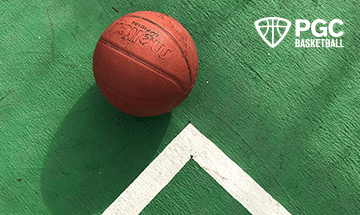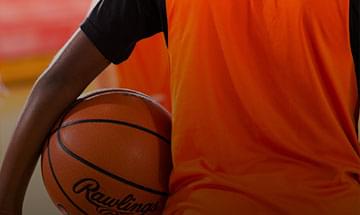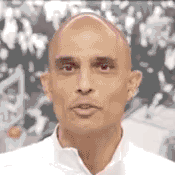Champions Welcome Unfairness
Champions don’t want to be treated like everyone else.
Welcoming unfairness is one of the most useful principles in the life of any athlete. Yet I am always struck by how many athletes seem to dwell on fairness when they talk about their sports excellence.
“The coach wasn’t fair.
“The coach did something for him but not for me.”
The next time a coach treats you unfairly, thank him and then make the best of the situation.
For many years when I ran a general basketball camp, my brother observed a tradition he called “Time to Pee.” It was very simple.
I used to begin each basketball camp session explaining the unfairness principle. I told the campers that I planned to treat every athlete unfairly. I would run the camp the way some things happen in the world—out of your control. Some people are born rich, some poor. Some tall, some short. Some beautiful, some ugly. Some gifted, others with disabilities.
Therefore, I told them, at my basketball camp, some athletes would be allowed to get drinks when they were thirsty, some would not. Some athletes who asked a question during an activity would be granted their wish but others might be forced to run or do push-ups for interrupting. With that, I proceeded to reward some athletes immediately with a candy bar or free T-shirt and punish others by making them run, touch a wall and come back.
With the point made clearly at the very beginning, we saved a lot of time and misdirected focus the rest of the week. Athletes didn’t constantly compare who was getting the most playing time during games, or worry about who was getting special treatment or favoritism in some other way.
During that first year of running the camp my brother and I stayed up very late on the last night, discussing how things had gone. He feared that some kids would go home and tell their parents they had been treated unfairly. He suggested that this might not be good for public relations and the success of future camps. Then he said something like, “Oh well, I guess we’ll just see what happens. I have to go and pee.”
I agreed. “Wait a minute. I think you’re right. We ought to treat everyone fairly, at least on the last night. If I let you go and pee, I ought to let everyone go and pee.” It was three in the morning, but my brother and our college athlete/counselors liked my next instruction.
“Go and wake everyone up and, even if you have to carry them to the urinals, make sure they all pee. I don’t want to be accused of unfairness.”
That night and every last night of every camp I ran for a decade after, we had the closing “Time to Pee” event. At 3:00 A.M. the counselors would wake everyone (we had all boys back then) one by one and make sure, even if they had to carry someone, that everyone peed in the name of fairness.
It was crazy, it was fun, and it bothered particularly tired athletes who sometimes claimed that they didn’t have to pee. But they were always contradicted in very forceful terms by the college athletes standing at their bedsides and ready if necessary to tote them off to the urinals and hold them up while they peed. “One guy peed. Now everyone has to pee. Coach said we have to be fair.”
I always hoped that the lesson would get through loud a clear and remain with the athletes forever. Perceived unfairness is so urgently and accusingly pointed out by so many people in so many situations that it’s not surprising that athletes, too, can fall into the same trap. Don’t let it happen to you. Desiring fair treatment is the province of the mediocre.
Champions don’t want to be put on an equal plane with others, they welcome the opportunity to show what they are made of under all sorts of conditions. They don’t worry what has happened to anyone else. They are eager to demonstrate what they can do.
Hopefully you will not go through life constantly looking to see if you are being treated like others. Instead, focus on making sure you respond famously to whatever treatment you are getting. (Could it be a special test aimed at bringing out something special from you?)
Remember, you don’t know why the gods seem to favor some over others. In all cases, your best course of action is just to take what comes and make the best of it. I’d like to go on with the explanation, but I can’t. I gotta go pee. You have to go, too.
—Excerpted from the book, “Think Like a Champion”
Related Articles
The Beauty of the Game | The Leadership Podcast
Mano joins Jan Rutherford & Jim Vaselopulos, on The Leadership Podcast to talk about his sports and business experiences with stories and advice on thinking like a coach, communicating, and making a difference in people’s lives.
The Way I End Each Year
For the past few years, I have taken time over the holidays to do the same two exercises: On New Year’s Eve I take time to reflect back on the year; then on New Year’s Day I take time to create my plan for the coming year. These few hours have become really special to me. In fact, I look forward to them with great anticipation. Looking back on the year gives me the chance to pause to celebrate and appreciate all that transpired. My reflection process is the same each year.
A Leadership Lesson Most Never Get
If there is one crucial concept that is important to living well, it’s learning to live between your own ears.
About PGC
PGC Basketball provides intense, no-nonsense basketball training for players and coaches. Our basketball camps are designed to teach players of all positions to play smart basketball, be coaches on the court, and be leaders in practices, games and in everyday life.
We combine our unique PGC culture with a variety of teaching methods and learning environments to maximize the learning potential of those that attend our sessions. In addition to spending 6-7 hours on the court each day, lessons will be reinforced through classroom sessions and video analysis.
Our goal at PGC is to empower you with the tools to fulfill your basketball dreams, while also assisting you in experiencing the joy of the journey.
To learn more about PGC Basketball, including additional basketball training tips and videos, visit our YouTube Channel or find us on Facebook, Instagram, and Twitter.













Share This Post